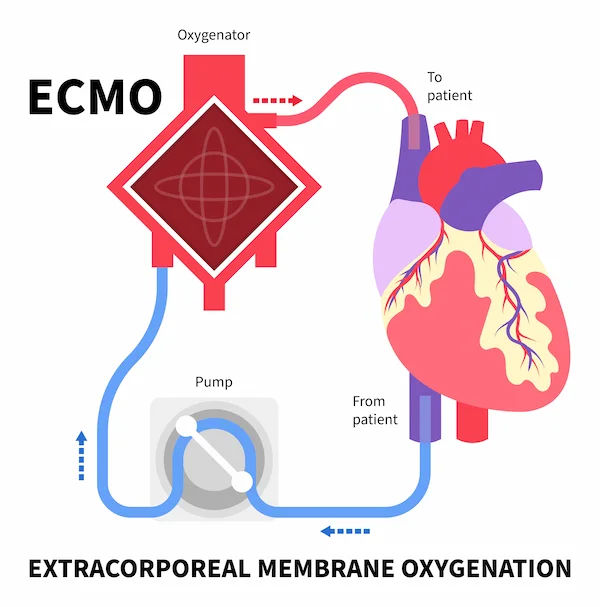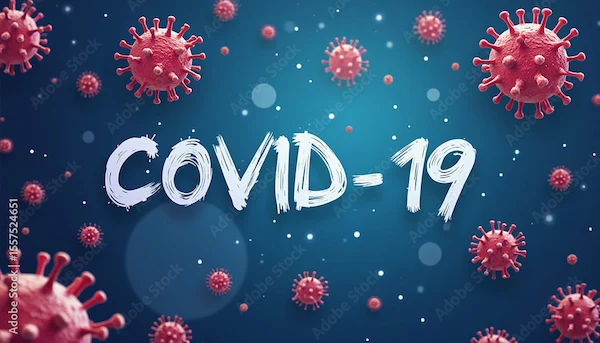COVID-19 Complications and Their Effects
Learn about COVID-19 complications and their effects on the lungs, heart, brain, and other organs. Understand long-term risks and when to seek medical attention for persistent symptoms.


The COVID-19 pandemic has affected millions of people worldwide, and while many recover fully, some experience lingering or severe complications. If you or a loved one has had COVID-19, it’s important to understand the possible long-term effects and how to manage them. This article will guide you through common complications, their impact on health, and ways to recover effectively.
What Are COVID-19 Complications?
COVID-19 is primarily a respiratory illness caused by the SARS-CoV-2 virus. While some people have mild or no symptoms, others develop severe infections leading to complications. These complications can affect different organs and persist even after recovery, a condition often called "Long COVID" or "Post-COVID Syndrome."
Common COVID-19 Complications
Here are some common COVID-19 complications:
1. Respiratory Problems
COVID-19 primarily affects the lungs, leading to:
Pneumonia: Inflammation in the lungs causing breathing difficulties.
Acute Respiratory Distress Syndrome (ARDS): A severe lung condition requiring oxygen support or ventilation.
Lung Scarring (Fibrosis): Long-term damage making breathing difficult.
Symptoms: Shortness of breath, persistent cough, chest pain.
2. Heart-Related Issues
COVID-19 can cause inflammation in the heart (myocarditis), blood clots, or irregular heartbeats, increasing the risk of:
Heart attacks
Heart failure
High blood pressure
Symptoms: Chest pain, palpitations, fatigue, swelling in legs.
3. Neurological Effects
Some patients report brain-related complications, such as:
Brain fog: Difficulty concentrating or remembering things.
Headaches & dizziness
Loss of smell or taste (which may take months to return)
Stroke or nerve damage (in severe cases)
4. Fatigue & Weakness (Post-COVID Fatigue)
Many people experience extreme tiredness, muscle weakness, and difficulty performing daily activities even after recovery.
5. Mental Health Impact
The stress of illness, isolation, and fear can lead to:
Anxiety
Depression
Sleep disorders
6. Digestive Problems
Some patients report:
Diarrhoea
Loss of appetite
Stomach pain
7. Kidney & Liver Damage
Severe COVID-19 can cause organ dysfunction, leading to long-term kidney or liver issues.
8. Blood Clotting Disorders
COVID-19 increases the risk of blood clots, which can lead to:
Deep Vein Thrombosis (DVT)
Pulmonary embolism (lung clots)
Who Is at Higher Risk of Complications?
Certain groups are more vulnerable to severe COVID-19 effects:
Elderly individuals (above 60)
People with pre-existing conditions (diabetes, heart disease, lung disease, obesity)
Those with weakened immune systems (cancer patients, HIV, transplant recipients)
Smokers
Consult Top Specialists
Managing COVID-19 Complications
If you’re recovering from COVID-19 and experiencing lingering symptoms, here are some ways to improve your health:
1. Breathing Exercises & Pulmonary Rehabilitation
Practice deep breathing exercises to strengthen lung function.
Use a spirometer (a device to improve lung capacity).
Consult a physiotherapist if needed.
2. Gradual Physical Activity
Start with light walks and slowly increase activity.
Avoid overexertion if you feel fatigued.
3. Healthy Diet & Hydration
Eat protein-rich foods (eggs, lentils, lean meats) for muscle recovery.
Include fruits and vegetables for immunity.
Stay hydrated to help flush out toxins.
4. Mental Health Support
Talk to a counsellor if feeling anxious or depressed.
Practice relaxation techniques (meditation, yoga).
Stay connected with family and friends.
5. Regular Medical Check-ups
Monitor blood pressure, sugar levels, and oxygen saturation.
Get follow-up tests if recommended by your doctor.
6. Vaccination & Booster Doses
Stay updated with COVID-19 vaccines to reduce reinfection risks.
When to See a Doctor?
Consult a healthcare provider if you experience:
Severe shortness of breath
Chest pain or irregular heartbeat
Confusion or memory problems
Persistent fatigue affecting daily life
How Apollo 24|7 Can Help?
If you or a loved one is dealing with post-COVID complications, Apollo 24|7 offers:
Expert consultations with pulmonologists, cardiologists, and neurologists.
Diagnostic tests (lung function tests, heart scans, blood work).
Rehabilitation programs for recovery.
You can easily book an online consultation or schedule tests through the Apollo 24|7 app or website.
Conclusion
Recovering from COVID-19 can take time, and some complications may linger. However, with proper care, a healthy lifestyle, and medical support, most people can regain their strength. Listen to your body, stay patient, and seek help when needed.
Consult Top Specialists
Consult Top Specialists

Dr. Rajib Ghose
General Physician/ Internal Medicine Specialist
26 Years • MBBS
Kolkata
B Ghose Foundation Doctor's Chamber, Kolkata
(25+ Patients)

Dr. Rajib Ghose
General Practitioner
25 Years • MBBS
East Midnapore
VIVEKANANDA SEBA SADAN, East Midnapore

Dr. Swathi Reddy Perugu
General Physician/ Internal Medicine Specialist
7 Years • MBBS, MD (General Medicine)
Hyderabad
Health plus, Hyderabad

Dr. J T Hema Pratima
General Practitioner
9 Years • MBBS
Chennai
Apollo 24|7 Clinic - Tamilnadu, Chennai
(275+ Patients)

Dr. Ashita Kuruvilla
General Practitioner
6 Years • MBBS
Kolkata
KVC CLINIC, Kolkata


